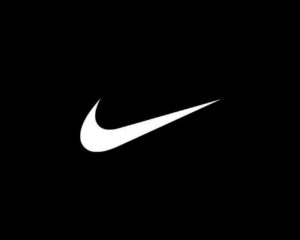
I never thought I would someday write this about a brand like Nike that it probably has one of the worst possible return policies of the big brands that I have experienced so far and so discriminatory. There’s simply an air of superiority & control as they leverage their branding dominance while negotiating with customers who want to return their products due to faulty workmanship on the part of Nike. And I’m surprised, that a multi-billion dollar brand as big as Nike, still haven’t figured out an easy solution to products which have a manufacturing flaw and not physically damaged.
A portion of the ubiquitous swoosh logo on one of the sneakers I purchased recently at mall outlet had come off despite using the pair sparingly and exclusively for normal activities such as walking, so when I went to that outlet to ask for a replacement I was surprisingly told to call up Nike. After giving them a call I was asked to ship the product so one of the Nike inspectors would take a decision on whether or not it warranted a replacement or otherwise. It’s totally on the discretion of the inspectors I was told. The weird replacement policy also suggests that regardless of the colour at the time of the purchase Nike does not guarantee it would replace the sneakers with the same shade although they definitely guarantee the size. So god forbid, but how much I’d hate myself to be ogled on the streets with bright fluorescent orange shoes! Wasn’t Nike’s product messaging attributed to ‘personalization’ and individualism? This again, is left at the discretion of the inspectors. Moreover, when I bought the shoes I was just told about the 30-day return policy and nothing about paying the shipping costs in case I opt to return the product. Clearly, this has to be one of the most ridiculous return policies from a well-known brand. Here’s what I learned during my conversation with the Nike representatives and it’ll shock you.
Nike Store Operations
It was during the call today that I realized to my surprised that Nike operates two categories of brick and mortar stores — one that’s owned and operated by Nike and the other are franchisee outlets. In other words, unlike the Apple stores which are owned and operated by Apple with clear branding & customer experience not all stores with the ‘swoosh’ identity are operated by Nike. Beware!
Return Policy
Per my conversation with the customer executives (Peter, Mary, Ozzie) based on your selection of the store the return policy differs to an extent. Products bought at the Nike-owned stores and Nike.com are accepted at the Nike-owned outlet and they bear all the shipping costs but anything that you buy at the franchise outlet must be shipped to Nike and the shipping costs must be paid buy the customer. And there’s no easy way to know which store is what unless you have a specific conversation with the sales executive on their return policy or make your purchases online on Nike.com.
From a customer standpoint, if Nike is selling its products through retail stores it shouldn’t matter if they are owned by Nike or by whoever because it’s the experience & value proposition in question, the store is simply a channel. Hence it has to stop its policy of discrimination as long as the customers are being charged for the brand, regardless of wherever. So if the franchisees are selling Nike products they receive the returns too at no extra cost to the customers. Clearly, there’s an underlying business tactic behind this deal which I’m not able to comprehend, but in simple terms, Nike should offer the same privileges to customers from their franchise stores as their online or at Retail Store. Where’s the question of paying for shipment for a product if there’s a manufacturing defect? Just Do It.
There’s More…
Once the sneakers are inspected by the so-called inspectors and they decide whether it’s worth sending a replacement. Physical wear and tear is not covered under this policy, most importantly, sneakers which are older than 2 years from the date of their manufacturing are not eligible so the next time you decide to go for a pair of Nike sneakers ensure this info by looking for the tag underneath the pad inside, the manufacturing date is legibly mentioned alongside the item no., something like BEXXXX-004. Why can’t the manager of the outlet where the Nike product was purchased take a call on whether a replacement could be afforded or not?
Don’t Be Left Cheated
It’s not surprising how the entire sales experience is played out to pull in customers but just like any other big product brand the service experience is pathetic and selective. And just so you don’t feel like a a complete idiot who was taken for a ride, here’s what I’d recommend you must do. Next time you make a purchase at any ‘Nike outlet’ make sure you check the sneakers for the manufacturing date. Ask the sales rep about the return policy and I’m pretty sure they’d end at telling you it’s 30-days, but that information is not enough as I have noted in my response. Prod them about the shipping details, etc. Trust me, this would save a lot of your invaluable time and energy going forward. Lastly, don’t take Nike’s word or for that matter, any other brand for granted on their quality standards. To put it plainly, it’s a manufacturing process and there will always be some flaw. It’s better to know the servicing process than curse the manufacturing one. In a nutshell, Nike is asking you to buy at the Nike Store or Nike.com and avoid Nike Partner Stores. Check the online store locator to find the Nike Store closest to you.
Accountability from Nike
Stick with whatever policy you might be comfortable be but be transparent about your service/return policies at least. Ensure that franchisees make it amply clear they don’t run the brand but are merely owning the place that sells Nike. When asked about return policy ask your franchisee outlets to outline the WHOLE process and not just the “30-day” version. Don’t make the customer feel as if you don’t care for their hard-earned money.
I have to say the toll-free customer service is grossly misguided and out of touch with current times. They sound awfully robotic and politically correct and perhaps they don’t have the freedom or the courage to empathize with a customer’s reasonable demand. Plus their lack of conversational skills and advocacy for what is truthfully justified is both surprising and sad because Nike is such a youthful brand. For example, when I asked if I could be given a discount on my next purchase — I was paying shipping costs, I wasn’t told about this complicated return policy and I had no discretion to choose the shade for the replacement or whether or not I’d get a replacement shoes, I was told I could go online on Nike.com where they put out promo codes every once in a while. That’s utterly shameful to hear on behalf of a top quality global brand.
I’m unable to comprehend Nike’s discriminatory retail strategy in penalizing buyers who prefer Nike partner outlets. Do they want to transition to single brand retail and are encouraging customers to move their purchase priorities to exclusive Nike-owned domains? Another rationale relates to the franchisee businesses who aren’t keen on after sales servicing. They’d rather have Nike to carry that load. Whatever the case may be, Nike should be accountable for fixing its fragmented buying experience and to stop differentiating customers on the basis of where they end up buying their items.
I learned several things dealing with Nike and the dilemma that many top brands face in the wake of competition although I would not like to put Amazon in the same basket as Nike or Apple. Because Amazon seems to have grasped the value of being truly ‘customer centric’ and ‘customer-driven’ without running a brick-mortar outlet and by engaging with them solely on the basis of feedback and data. In that sense, I feel Nike is light years away from figuring customer experience despite being the in the retail business for ages and successfully creating the impression of being a strong, vibrant entity largely thanks to their association with sports and sports personalities. The important question is, where does the buck stop for customer support and services? Nike stands for quality so if a customer is dissatisfied with the quality of his/her product which was bought at a store, how might they build a seamless return experience to assure its customers about its effectiveness? At this point, it’s anything but smooth or seamless, rather just painful and lopsided.


